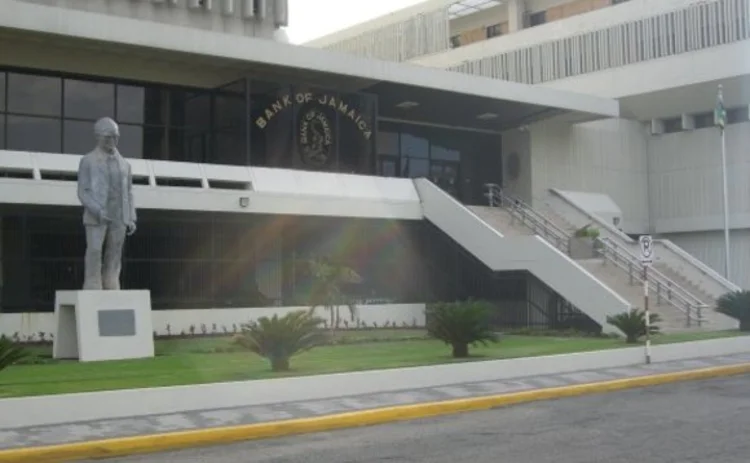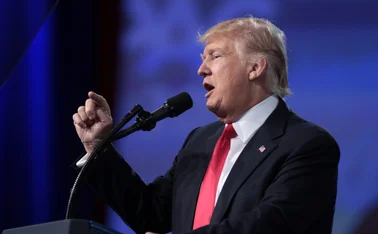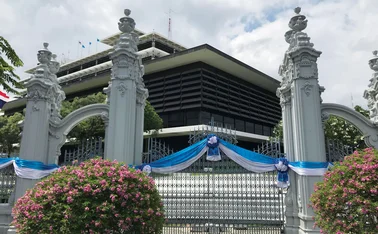
Jamaican finance minister clears a path for central bank independence
Legislative move a “big and important step”, says Bank of Jamaica's governor Brian Wynter

Jamaica’s minister of finance and public service Nigel Clarke tabled legislation on October 23 aimed at granting formal operational independence to Jamaica’s central bank, the Bank of Jamaica.
The bill to amend the Bank of Jamaica Act would ensure the central bank is made accountable for achieving low, stable and predictable inflation. Such a move, which is likely to be introduced into law in the next six months subject to passing a bi-partisan parliamentary review, would appear to represent the first time a central bank in th English-speaking Caribbean was granted operational independence to pursue a fully-fledged inflation-targeting regime as its flagship policy stance – although a shift to operationally independent central banks pursuing inflation targets has proven popular ever since such a mandate was given to the Reserve Bank of New Zealand in 1988.
“It is a big and important step that I am happy to see, as a Jamaican even more so than as central bank governor, because an independent central bank – which means a modern, efficient, transparent and accountable central bank – focused on low and stable inflation, is Jamaica’s best way of preserving the value or purchasing power of our currency and is therefore good for the economy and good for the people of Jamaica,” says Bank of Jamaica governor Brian Wynter.
Wynter tells Central Banking the “main dividend” of the shift to an inflation-targeting regime is that “monetary policy will be able to more effectively provide an environment that preserves the long-term value of money”.
He expects this will “provide a fundamental boost to Jamaica’s productive capacity” and “market confidence”.
“An environment of low and stable inflation and low and stable interest rates means a lower cost of capital and a less risky environment for investors to make long term plans,” Wynter says.
Implementing the new target will be challenging as it implies the Caribbean nation will have to allow exchange rates to move freely and markets will play a greater role in policy operations. However, Jamaica, which is on an International Monetary Fund programme, has already operated with de facto independence for a number of years.
The current effort by the government would enshrine the current practice into law.
“Now, with fiscal rules on one hand and an independent and accountable central bank on the other, both monetary and fiscal policy will have to behave properly and account to the people, and the central bank will have a guaranteed mandate to pursue long-term monetary policy without undue political interference or pressure,” Wynter says.
He likened formal central bank independence as “like an insurance policy” for the people of Jamaica, “because it protects us all from ever returning to an era of high and unstable inflation”.
Only users who have a paid subscription or are part of a corporate subscription are able to print or copy content.
To access these options, along with all other subscription benefits, please contact info@centralbanking.com or view our subscription options here: http://subscriptions.centralbanking.com/subscribe
You are currently unable to print this content. Please contact info@centralbanking.com to find out more.
You are currently unable to copy this content. Please contact info@centralbanking.com to find out more.
Copyright Infopro Digital Limited. All rights reserved.
You may share this content using our article tools. Printing this content is for the sole use of the Authorised User (named subscriber), as outlined in our terms and conditions - https://www.infopro-insight.com/terms-conditions/insight-subscriptions/
If you would like to purchase additional rights please email info@centralbanking.com
Copyright Infopro Digital Limited. All rights reserved.
You may share this content using our article tools. Copying this content is for the sole use of the Authorised User (named subscriber), as outlined in our terms and conditions - https://www.infopro-insight.com/terms-conditions/insight-subscriptions/
If you would like to purchase additional rights please email info@centralbanking.com
Most read
- ‘Do I die, or do I survive?’ Officials reflect on Basel III complexity
- French president calls for expanded ECB mandate
- ECB says iPhone is currently incompatible with digital euro








